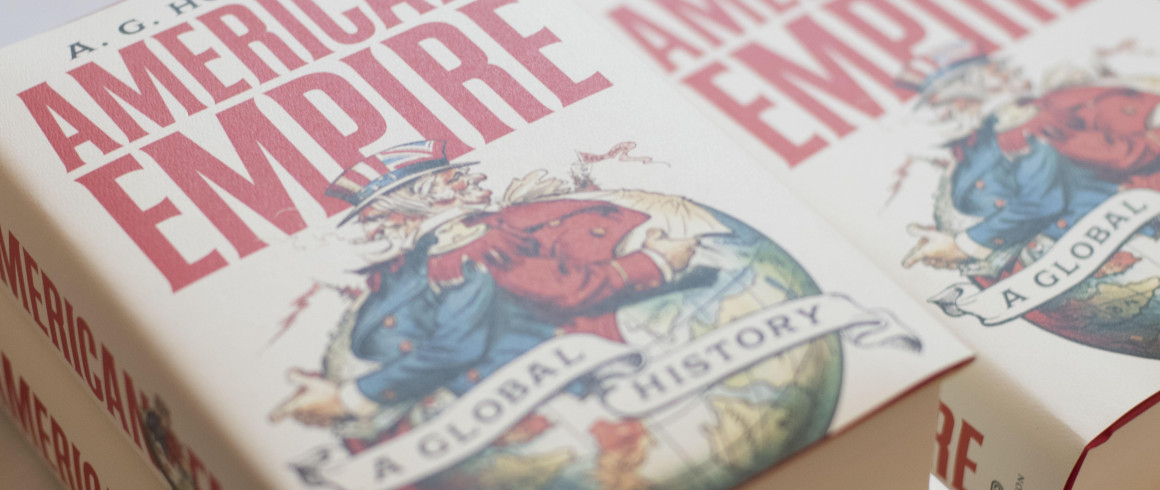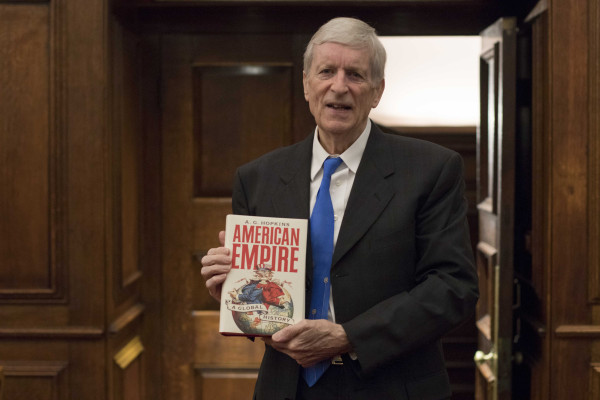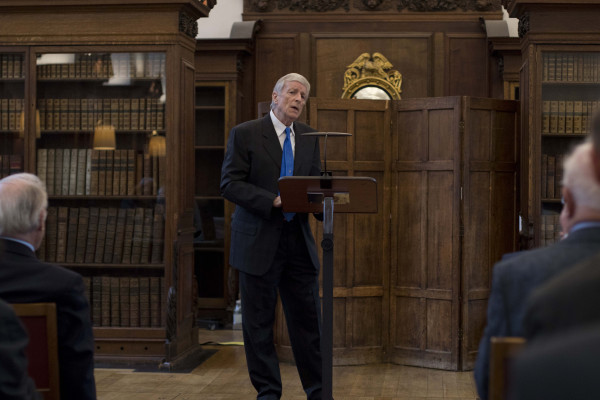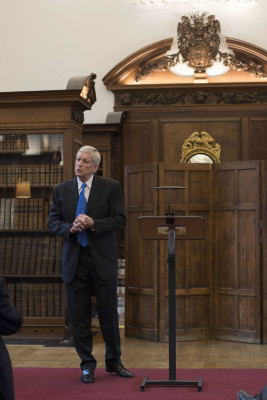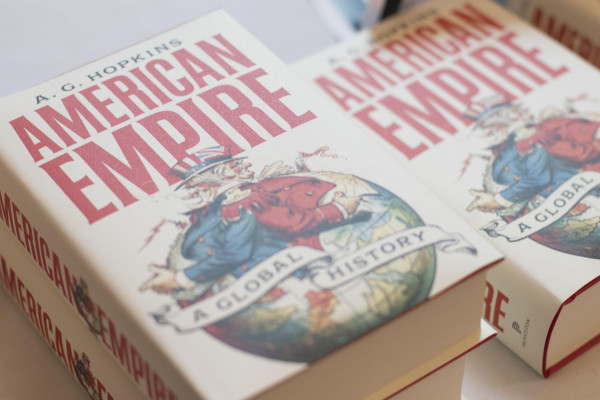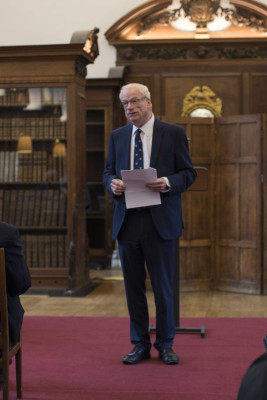American Empire: Circle Lecture 2018
The 2018 Pembroke Circle Lecture was given by distinguished historian Anthony Hopkins on the same topic as his latest book, American Empire: A Global History.
Professor Hopkins began his talk with a promise to demonstrate the rise and fall of the ‘American Empire’ over three centuries. His lecture explored the changing nature of both America’s place in the world, and the concept of empire itself.
Starting in the period from 1607 to 1783 Professor Hopkins described an ‘uncontroversial’ definition of empire, where states like Britain had a constitutional presence throughout their empires, colonies ruled by governors appointed by the monarch, and London determined the laws and policies throughout the colonies. This period, he argued, was an anticipation of much of what was to follow.
In the 18th century, ‘empire’ became a contested term. It was used for a collection of dependencies that lacked equal rights with the ‘home’ state. The American Revolution and subsequent breakdown of British rule divided views both in America and at home in London, but ultimately the US achieved its independence. The scholarly result, Professor Hopkins said, was a sharp break, after which colonial historians bow out and US historians take over. The reason this is problematic, he argued, is the difference between formal and effective independence. Effective independence he defined as the moment that the structures of power (economic, political and cultural) are transferred to the newly independent state. By distinguishing between the two forms of independence he described an America that was dependant on Britain well into the 19th century for economic and military support. Beyond direct support there was also the matter of influence; British politics continued to influence US domestic politics and it took some time for the US to develop a strong counter-culture of its own. The US remained within Britain’s orbit.
The latter half of the 19th century on the other hand saw transformative change in the world order through the rise of manufacturing, and a shift from rural to urban work and living. At the same time a major economic change, the nation state (separate from the royal dynasties that had previously defined states) began to form in earnest. The unification of Italy and Germany; reform in France and Britain – democracy was expanding and elites were increasingly worried about a ‘tyranny of the majority’ and the need to inspire loyalty to the state. Imperialism became closer to compulsory globalisation, and the US acquired the remnants of the Spanish Empire, thereby declaring its status as a world power and economic powerhouse. Through people like Emily Dickinson and Mark Twain it was also developing its own cultural landscape. This ‘Empire’ may be small in comparison to the others, Professor Hopkins admitted, but the US ruled 24 million people in the 1900s and displayed many of the same traits of the larger empires. They had the same justifications for rule, and the same methods. The economic and political patterns were similar, and they experienced a wave of independence at the same time as European states.
Empires are now redundant and unworkable. Since the late 20th century the US has sought to influence rather than integrate. The word ‘hegemon’ became preferable to ‘empire’, a semantic break from the colonial past. It’s important, Professor Hopkins pointed out, to distinguish between great powers and empires; a state could be the former but not the latter. What his talk demonstrated was that America’s history is very much tied up with that of Empire, and the timelines of independent states, empires, and global superpowers may be a little more complex than we have previously believed.
